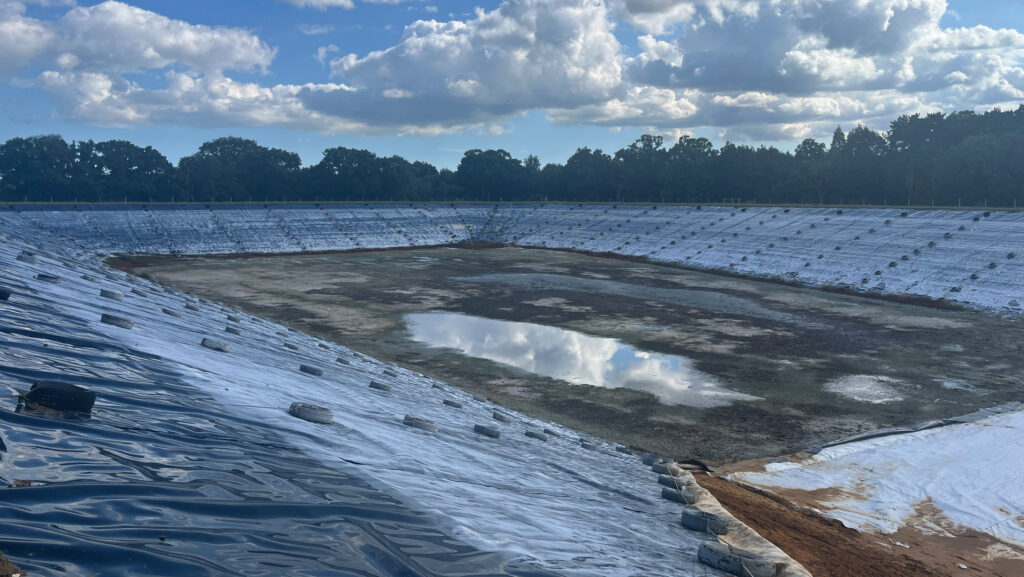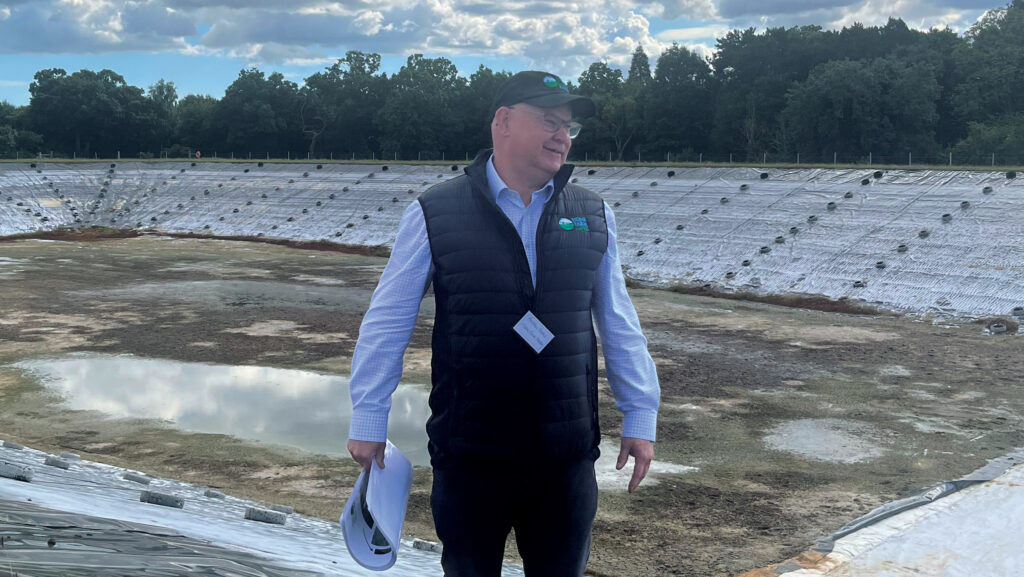Why reservoirs are key to sustainable water abstraction
 © Louise Impey
© Louise Impey The proposed 30% overall reduction in water that can be abstracted for irrigation in East Suffolk could result in losses of up to £2,300m across the supply chain over the next 20 years.
That’s the main finding of the report carried out on behalf of the East Suffolk Water Abstractors Group (Eswag) and Norfolk Environment Food and Farming by Risk and Policy Analysts, looking at the value of water used for food production to the local and national economy.
In such a scenario, there would be job losses across the supply chain, too – with the report estimating there would be 2,500 fewer jobs each year if water supplies were insufficient.
See also: Guidance on planning an on-farm irrigation reservoir
Against a background of abstraction licences being revoked, investment in water storage restricted and concerns about the environment, there’s a pressing need to address water storage, concludes the report.
What is Eswag?
Formed in 1996 in response to drought, the East Suffolk Water Abstractors Group has 97 members holding 215 abstraction licences.
Together, it has 18,000,000cu m of annual licenced volume, representing 92% of the abstracted volume.
The organisation works closely with the Environment Agency to understand more about forthcoming licence reductions and develop sustainable abstraction, so that agricultural productivity can be maintained.
It is also part of a wider Water for Food group, which is working as one voice to secure a fair share of sustainably abstracted water for the agri-food sector.
“Farming and food production on the Suffolk coast will always need water – without it, there is a direct loss of output because yields are affected,” explains John Patrick of Eswag.
“There’s also a detrimental effect on quality with most crops, as well as a reduction in food supply.”
Two sets of rules
Food is not seen as a public good when it comes to securing water supplies, so some farmers face losing abstraction licences in April.
In contrast, any public water supply reductions have been delayed until 2040.
“It’s one environment and one catchment, yet there are two sets of rules,” he reports.
“What we would like to see is some equity or similar treatment, so that food gets its fair share.”
He accepts that water resources in the East are under pressure and that over-abstraction, competing demands and climate change are adding to the situation.
“We know that, by 2050, climate change will mean we get 39% less rain in the summer, with river flows being 81% lower, while there will be 35% more rain falling in the winter and river flows being 35% higher.”
The solution is to invest in water storage in the form of reservoirs and to change licences so that they can be filled when flows are high, he continues.
“The investment needed for this to happen is less than the losses that will occur if we don’t do anything.
“Farmers need to be able to store water in the winter when it’s plentiful, so constructing and filling reservoirs is a priority.
“But to get that done, we will need help with planning and regulation, as well as with finance.”
Cost
The estimated cost of building enough reservoirs in the region is £130m, the report calculates.
“If we can do that, it provides the certainty that this sector needs and encourages further investment, while helping to enhance the environment.”
Despite the many regulatory obstacles encountered, some 17 reservoirs have been built in the past 10 years in Suffolk, reports John.
“It’s been the difference between unsustainable and sustainable abstraction, but it has called for joined-up thinking.
“We know that a collaborative approach works best and we’re confident that we can overcome the challenge that we’re all facing, providing the Environment Agency works with us.”
Case study: Home Farm Nacton, Suffolk
Despite considerable investment in water storage and irrigation over the years, not having sufficient water supplies last summer meant that compromised decisions about high value vegetable crops had to be made, explains Andrew Francis, managing director of Home Farm Nacton.
Growing 26 different crops across 1,787ha of farmed land and with an irrigation season that stretched from March through until September 2025, Andrew started modelling water use in June.
“It quickly became apparent that if we carried on applying water at the rate we were using it in such a hot and dry season and in accordance with crop need, we would run out,” he says.
Prioritise crop quality
“So we compromised by prioritising crop quality, rather than yield. As a result, we did see yield loss and despite our best efforts, some quality issues arose due to the extreme heat.”
He believes that restricting water supplies to farms and altering licencing arrangements in the region could eventually change food availability, potentially having a detrimental effect on the nation’s diets and societal health.
“Potatoes, for example, need twice the amount of water that brassica crops do. So if we have less water available to us throughout the season, we’re going to grow crops that can cope with that.”

Andrew Francis © Louise Impey
Given the complexity of the farm’s cropping, Andrew is used to carrying out water resource planning and relies on it when planning the rotation.
“We know that it’s a finite resource and that there are competing demands for water, all of which are being put under pressure by climate change.”
However, irrigation is not a marginal benefit in east Suffolk, he adds. “The impact of not having enough water over here is disproportionate.”
Reservoir expansion
Home Farm Nacton already has eight water reservoirs totalling 800,000cu m and is in the process of adding a further 35,000cu m, by extending one of the existing sites.
A combination of winter and summer abstraction licences gives the business a total licensed volume of 1,009,347cu m.
It is also a founder member of Felixstowe Hydrocycle, an innovative farmer-led water recycling system, which supplies 20% of the water used on the farm.
“Without that foresight and commitment, we would have been in a muddle this year.”
Andrew stresses that farmers and growers need to be able to manage the extremes within seasons if they are going to maintain food supplies.
“A multi-year licence would help, so that short-term decisions are avoided. And we need to be able to hold some water over into the following year.”
The current extension being done to an existing reservoir on the farm is taking place without grant funding, despite the application proceeding through the system and meeting the requirements.
“It failed on a process, which was very frustrating and caused delays, so we missed the opportunity to store much-needed water.
“We are always looking to work collaboratively and come up with solutions, but there are still some major obstacles in the way.
“In our case, we must have storage to be able to take advantage of water coming from Felixstowe Hydrocycle.
“It’s still the case that more water is pumped out to sea than is used for irrigation.”

